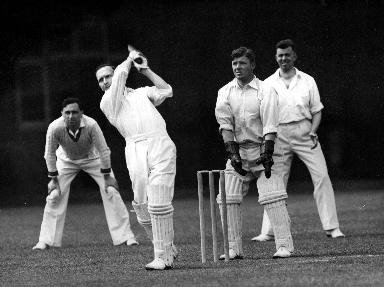3. "Naturally I am interested," remarked Boycott when Brearley stepped down from the England captaincy in the spring of 1980. The Test selectors, however, chose a much younger player to skipper the side against the West Indies that summer. Who was it?
From Quiz The Test Career of Geoffrey Boycott [3]
Answer:
Ian Botham
Boycott had wanted the England captaincy badly since at least 1973 and was considered by many (including, of course, himself) to be the person best qualified for the job, but it seems that the board of selectors (and in particular their long-serving chairman, the unflappable Alec Bedser) had decided a long time before this that the Yorkshireman was a hopeless loner whose behaviour under extreme pressure was dangerously unpredictable. (The selectors were not always unanimous in these matters, however: Boycott's old Test buddy John Murray had resigned from the panel in protest in the autumn of 1978 after his one-time teammate was deprived of the England vice-captaincy.)
All this led to Botham's being thrown in at the deep end as skipper against Clive Lloyd's all-conqueroring West Indians, and the extra pressures of captaining the side against such ultra-powerful opposition certainly seemed to affect the brilliant young player's batting form, which returned in 1981 immediately after he relinquished his extra burden.
Boycott was a key player in Botham's team, and he played his heart out as always. England lost the summer series only 1-0, and nobody will ever know if the extra expertise that Boycott would have brought to the top job might not even have tipped the end result in England's favour. Boycott would also have had his say in selection meetings, without any doubt: he is on record as commenting, for instance, that he thought the selectors had made a pretty good blunder in dropping the classy Kent batsman Bob Woolmer from the England squad after only two Tests of the summer, and then not even bringing him back for the Caribbean tour which followed, when several players of lesser ability were chosen.





 = Top 5% Rated Quiz,
= Top 5% Rated Quiz,
 Top 10% Rated Quiz,
Top 10% Rated Quiz,